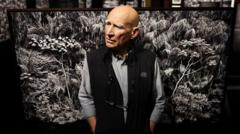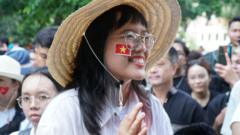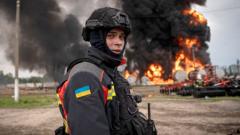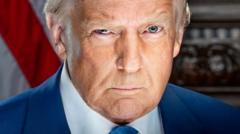The Vietnam War marked a pivotal moment in history, often referred to as the first “living room war,” due to its pervasive presence on television and in print media. Photojournalists of the era became storytellers, capturing the raw and intimate realities of conflict, from moments of deep suffering to acts of indomitable human spirit. Their evocative images played a crucial role in shaping public sentiment and opposition to the war.
As we recognize the 50th anniversary of its end this week, we reflect on the enduring lessons these photographs impart. “The Things They Carried” author Tim O’Brien poignantly captures the complex emotions of war, stating, “I survived, but it’s not a happy ending.” This sentiment resonates deeply with the aftermath of the Vietnam War, which concluded officially on April 30, 1975, leaving a lasting impact on the American psyche.
The iconic images from this tumultuous time were taken by a diverse group of photojournalists, each bringing unique perspectives and backgrounds. Among them, Dickey Chapelle stands out as the war’s first female photojournalist casualty, blending a fierce anti-Communist stance with her craft. Tim Page, a laid-back British photographer, and Henri Huet, a French-Vietnamese photojournalist known for his compassion, also contributed to the visual narrative, capturing scenes that would forever alter the lens through which Americans viewed not just the conflict, but also their own identity and morality.
The powerful visuals from the Vietnam War serve as a haunting reminder of the true nature of conflict, continuing to provoke discussions and reflections about duty, honor, and the personal tolls of war on society. Their legacy is a testament to the compelling nature of photography in shaping historical narratives and influencing public opinion.





















